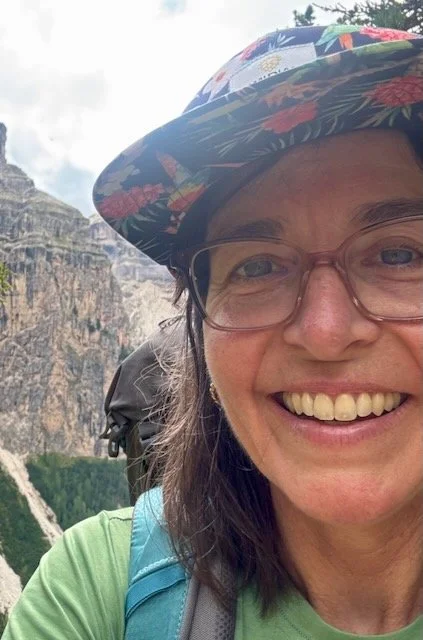We Feel It, Can We Talk About It?
I don't know if anyone else is having post-apocalyptic dreams that wake them up in the middle of the night, but when I had a slew of them last week, the thing I thought about as I lay awake in the dark was death. I feel compelled to write about this because I feel wildly unprepared for it–the deaths of tens of thousands of strangers, people I know, myself–and listening to the world right now, I don't think I'm alone in that.
If the idea of reading something about death, loss, and grief right now makes you want to poke yourself in the eye, skip this section, or tuck it away for another day. There's no right move here besides the one that works for you right now.
I didn't start reading about death and loss because of the pandemic, I started a few months ago because in my writing about menopause I was searching for a framework, some kind of emotional scaffolding, that could support people through the vulnerability and loss that are inherent to major transitions. In reading about death and loss I hoped to find answers to questions like how do we cope with things beyond our control, how do we deal with loss in our lives, and how does our dogged resistance to the idea of our own limitations affect the way we live.
Now, looking at the staggering estimates for the number of people who will die as a result of the pandemic, listening to ICU nurses confess that they are afraid of how much death they're about to see, hearing my sister say that she doesn't want any of our loved ones to die alone, I am reaching for guidance on grief and loss so that I can be a sound companion to myself and anyone else who will experience them because of this pandemic. I've found a handful of compassionate and informative resources that I'd like to share.
There are many excellent resources for learning how to relate to death throughout your life–your own and those of people dear to you–and how our culture and healthcare system engage (or don't) with death and dying. I've listed some that have been helpful to me at the bottom of this post. What I think is most helpful in this specific moment are insights that can help us prepare for the tidal wave of grief that has already started to touch people we know.
Grief and Loss Resources
I wish everyone had a copy of this book right now: It's Ok That You're Not Ok: Meeting Grief and Loss in a Culture That Doesn't Understand, by Megan Devine. One reason this book is so spot-on for this moment is that it focuses on sudden, tragic loss. She wrote this book, as the dedication notes, "For those who are the stuff of other people's nightmares." The author knows grief from both sides, she witnessed the death of her partner in a drowning accident and through her work as a counselor with a Master's in counseling psychology. In a clear-eyed and big-hearted voice, she talks you through the realities of grief, explains our cultural avoidance of it in plain language, and provides recommendations for how to support yourself and someone else in grief–including what not to say!
This conversation between On Being's Krista Tippett and Pauline Boss, author, and expert on loss, explores how to live with loss and also how to support those experiencing loss. Boss doesn't solely focus on loss associated with death, she explores the threads that connect all types of loss–divorce, Alzheimer's, people who go missing–and shares insights about how to understand the impact that loss has on us.
If you're struggling with talking about death to people, especially children, I would encourage you to listen to this short podcast, Talking to Children About Death, an episode of NPR's LifeKit that they made in partnership with Sesame Street. They effectively demonstrate how to allow for the pain and confusion that people may have in response to loss.
Advance Directive Resource
Let me start by admitting that a blank advance directive booklet sat on the file cabinet in my home office for three years before I finally recycled it when we moved a couple of years ago. These are hard to think about. Period.
And yet, the current pandemic is a somber reminder that anything can happen. Now might be a good time to complete an advance directive, a document that outlines how you want to be cared for at the end of your life. Understanding your wishes is helpful for medical professionals and your loved ones.
The simplicity of this advance directive feels manageable and I set a goal to complete mine this week. The publisher of this document, Five Wishes, has resources for those who feel compelled to have conversations with loved ones about end of life plans during the coronavirus pandemic. Note that Five Wishes is not considered a valid legal document in all states, in the FAQ section of their site you can learn about your state's requirements.
Additional Resources on Death & Dying:
The voices I have found that I'm not only able to listen to, but feel comforted by are BJ Miller (book: Beginner's Guide to the End, Fresh Air interview), Atul Gawande (book: Being Mortal, On Being interview), and Stephen Jenkinson (Interview in The Sun magazine, a short video about his book Die Wise).



